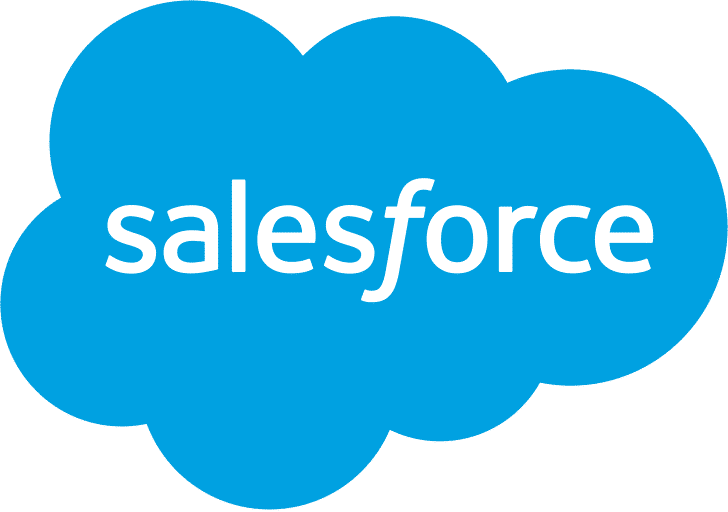

PANEL DISCUSSION SUMMARY
Rebuilding Trust in Insurance
Compared to other companies, which saw their reputations rebooted as a result of their response to the turmoil of the past year, insurers have not had a “good” pandemic. The industry suffered a greater decline in trust than any other part of the financial sector as long contact centre queues, frustrating digital and chatbot experiences and adverse publicity about disappointed claimants undermined customer confidence. As panellists on the recent Insurance Innovators webinar, Rebuilding Trust in Insurance agreed, there is now a burning need for insurers to build a better customer-insurer relationship as the world emerges into the next normal.”
“91% of insurance executives expect trust to tumble even further”
Neil Greathead, Smart Communications
This will be a challenge. For one thing, the fall-out from the pandemic is still being felt, with Neil Greathead, Chief Customer Officer at Smart Communications, highlighting recent research that found more than nine out of ten insurance executives expect trust to tumble even further. Some of these challenges were in place even before the pandemic: insurance is widely seen as a grudge purchase and its commoditisation has eroded opportunities to build trust and loyalty. As Jim Bruce, Senior Director of Customer Transformation at Salesforce, pointed out, “the race to the bottom on price has had consequences for customer intimacy and the quality of communications.”
“A McKinsey study showed the average person has just four touchpoints with their insurer in a year compared to 120 with their bank”
Dan Fiehn, Markerstudy
This is compounded by infrequency of customer interaction. Dan Fiehn, Group Chief Operating Officer at Markerstudy, highlighted a McKinsey study which showed the average person has just four touchpoints with their insurer in a year, as compared to 120 with their bank. Our panellists agreed they were surprised it was as many as four.
Sue McCall, Chair of the Society of Claims Professionals, said the problem often starts at the beginning of the customer journey. “We need to be honest and transparent and make sure that customers really understand the cover being provided so there’s no scope later for confusion,” she said. “It means keeping the wording as simple as possible and highlighting exclusions at an early stage so people really know what they are buying.”
Towards a brave new world
New technologies, however, look to revolutionise not only how customers engage with insurers but also the very fundamentals of the insurance model itself. Enabled by AIdriven analytics and burgeoning data from connected devices, the industry has the opportunity to extend its proposition from simple risk mitigation to that of trusted advisor, providing its customers with hyper-personalised risk prevention advice. This shift to a “predict and prevent” insurance model could, said Amy Brettell, Head of Customer, UK Claims, Zurich Insurance Group, “turn the industry on its head”.
“Companies need the courage to invest, that’s the important first step”
Jim Bruce, Salesforce
Jim Bruce of Salesforce said the key ingredient now is courage. “Companies need the courage to invest, that’s the important first step,” he said. “And that investment needs to target really knowing the customer, then intellectualising the data so you know what the customer might be looking for from a predictive perspective and then be more innovative around products and solutions.”
“The “do nothing” option is not on the table”
Dan Fiehn, Markerstudy
The vision of insurance companies becoming trusted life partners, helping their customers identify and mitigate risk in their life and achieve their goals, represents a profound shift in the insurance model. “It will take one of the large companies to make the jump and then everyone will follow,” said Dan Fiehn of Markerstudy. “The “do nothing” option is not on the table and there will be other entrants, such as Google and Amazon, that have the scale to do the job better.”
He added, however, that the time horizon for this transition “may be longer than we think, perhaps five to ten years out.”
Sue McCall of the Society of Claims Professionals agreed. “We have a way to go, especially after the back step of recent damage to the industry’s reputation, but there’s no reason why we can’t do this if we’re brave and innovative.”
The key, she said, will be making sure the advice “translates into tangible reductions in the customer’s level of risk.” This will require data that’s relevant and can be fed into sophisticated algorithms to deliver truly meaningful and useful insights that customers will value and be prepared to pay for.
A moral duty
However, Jim Bruce of Salesforce pointed out this isn’t just about building trust for the sake of the bottom-line. “There’s also a moral duty around preventing losses, building affordability and wider environmental obligations,” he said, highlighting statements from the InsurTech company Lemonade about heavy discounts for electric vehicles. “There’s an opportunity to drive and accelerate the agenda.”
Amy Brettell of Zurich Insurance Group endorsed this. “People have forgotten where insurance grew from and how fundamental it is to society,” she said. “From fire hydrants in the street to sprinklers in schools, we did that! We have lost some of that swagger in terms of the contribution we have made to society.”
Indeed, as Lindley Gooden, the session moderator, pointed out, “there’s no other industry better positioned to reassure people and support them as they journey into the future.”
Building trust, earning data
“If you know your customer then you can create an experience. Otherwise, it’s just a process.”
Neil Greathead, Smart Communications
Reminding the public of the good work of insurers is important but so too is making sure that products are relevant, fair and easy to understand and that experiences are genuinely customer centric rather than interactions driven by the internal process requirements of the business. Making this happen requires good data, said Neil Greathead of Smart Communications. “If you know your customer then you can create an experience,” he said. “Otherwise, it’s just a process.”
“If customers can see a tangible value when they share data, then they are more willing to let you into their world.”
Amy Brettell, Zurich Insurance Group
Access to customer data, however, isn’t a given. “People have to trust you to share their data with you,” said Amy Brettell of Zurich. “If they can see a tangible value when they share data then they are more willing to let you into their world.”
Jim Bruce of Salesforce agreed. “If you demonstrate relevance, appropriateness and value then people are surprisingly willing to share their data,” said Bruce.
Dan Fiehn of Markerstudy said the industry could learn from social media giants, which have had their own issues with trust over the years. “They now make it very clear when you sign up, with different boxes you have to click, what data they are capturing and how it will be used,” he said.
The workforce of the future
While automation will increasingly do much of the heavylifting, there is still a vital role for humans to provide the empathy, personality and judgement that is an essential element of the insurance business. Increasingly insurers will deploy a blended workforce of smart chatbots, automated processes and emotionally intelligent humans to meet the needs of tomorrow’s connected customers.
“We need to give people the tools to do their job,” said Jim Bruce of Salesforce. “Not long ago, we had a client asking their people to get intimate and close to customers from the outset of the call but there were 56 different systems for one claim process! How do we give these talented individuals the tools to do their jobs properly?”
“We have a moral imperative to help people upskill and reskill”
Amy Brettell, Zurich Insurance Group
“We need a diverse and inclusive workforce that reflects our customer base”
Sue McCall, Society of Claims Professionals
As the pace of automation accelerates, Amy Brettell of Zurich said the industry has a moral imperative to help people upskill and reskill. The workforce also needs to reflect the society it serves in order to stay relevant in a changing world. “We need a diverse and inclusive workforce that reflects our customer base,” said Sue McCall of the Society of Claims Professionals.
Neil Greathead of Smart Communications added that these issues need board level representation to drive change forward or the industry risks getting left behind. “The worst thing,” he stressed, “is to do nothing.”
WEBINAR PRODUCED IN PARTNERSHIP WITH
Smart Communications is a leading technology company focused on helping businesses engage in more meaningful customer conversations. Its Conversation Cloud™ platform uniquely delivers personalized, omnichannel conversations across the entire customer experience, empowering companies to succeed in today’s digital-focused, customer-driven world while also simplifying processes and operating more efficiently. Smart Communications is headquartered in the UK and serves more than 650 customers from offices located across North America, Europe, and Asia Pacific. Smart Communications’ Conversation Cloud platform includes the enterprise-scale customer communications management (CCM) power of SmartCOMM™, forms transformation capabilities made possible by SmartIQ™ and the trade documentation expertise of SmartDX™. In 2021, the company acquired Assentis, a leading European software solutions provider specializing in customer communications management (CCM) with a focus on the financial services industry.
To learn more, visit smartcommunications.com.
Founded in 1999, salesforce.com is the enterprise cloud computing leader. Salesforce.com’s social and mobile cloud technologies enable companies to transform into customer companies by connecting with their customers, employees, partners and products in entirely new ways. Based on salesforce.com’s real-time, multitenant architecture, the company’s apps and platform revolutionize the way companies sell, service, market and innovate.
Stay current with Insurance Innovators
Subscribe to our newsletter to receive news, insights and special offers.
